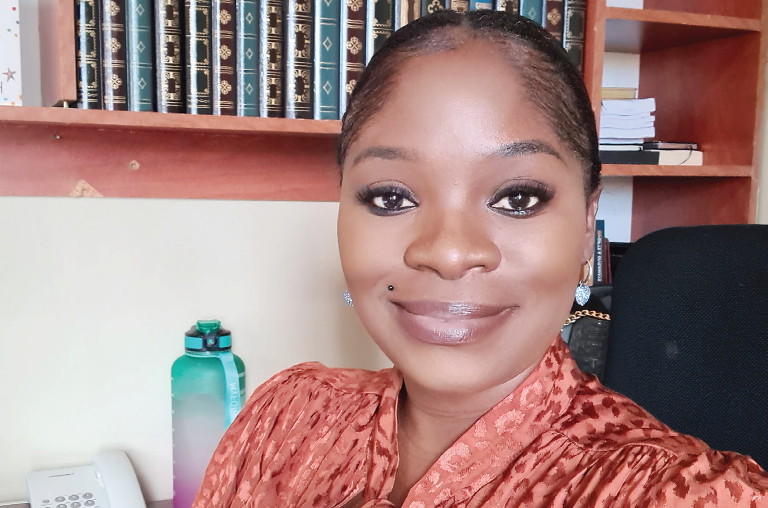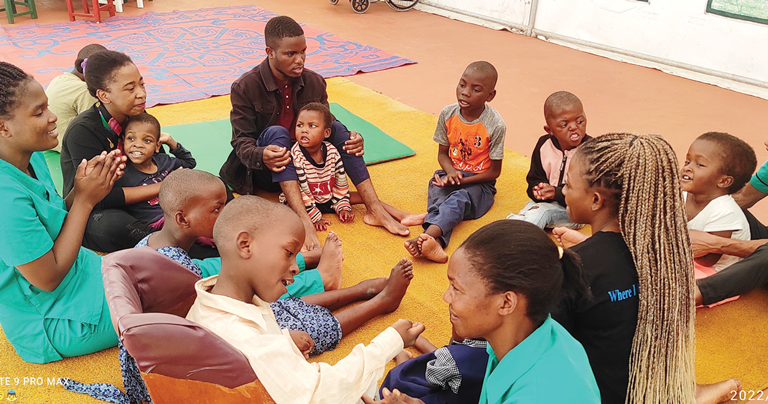Della Kulemeka: Founded Nditha Rehabilitation and Therapy Centre
In Malawi, a child born with a disability is often destined for a life of dependency.
And for the less privileged, this burden can be extreme because children with special needs are a social, financial, mental and physical burden to their families.

They hardly leave their homes and are unable to attend mainstream schools because the curriculum is not inclusive of their needs.
Armed with the experience of raising a special needs child, 41-year-old Della Kulemeka initiated the Nditha Rehabilitation and Therapy Centre in Blantyre.
The centre offers physiotherapy assessment and treatment, occupational therapy, speech and language therapy, special needs education and mental health support.
“We are concerned with the challenges they face in accessing services that can improve their quality of life. Currently, our facility caters for over 100 children who can afford to pay for the services we offer.
“However, recently we started a community outreach programme which is operational in different parts of Blantyre, providing free assessment to over 100 less privileged children,” explained the mother of three.

Kulemeka said they plan to extend coverage and reach out to more children who need their services in and around Blantyre.
In due course they hope to encompass other parts of the country as well.
Thus, she called on well-wishers and organisations to sponsor the outreach programme.
“We recently engaged Tidzalerana Shelter in Ndirande where we identified 34 children between the ages of three and 17 who needed our services depending on their special needs.
“After reaching out to a few organisations, the Thomson and Barbara Mpinganjira Foundation responded and are now sponsoring 34 children. These children look forward to every morning—Monday to Friday as they attend special needs school at Nditha,” she said.
She was inspired by her youngest child who had development challenges that led to late progress, affecting her mortal skills.
Kulemeka observed that every difficult moment and milestone they experienced with their daughter brought the family closer to the initiative—to create a therapy centre for every child with special needs.
The crowning moment came on the day she helped her daughter with schoolwork and she could not draw a circle properly.
She challenged her to keep trying and she eventually got it right.
“She told me she could not draw a circle. I looked at her and said you can, try one more time. When she tried to draw again, there was something that looked like a circle. It made her and me happy. That was the moment I said to my husband that nditha it is. It became the name of the centre to mean ‘I can’. Nditha is a place where I can’t becomes I can,” she said.
Nditha Rehabilitation and Therapy Centre has also partnered with other schools within Blantyre, including Phoenix, Mount View, Central High, and Growing Star where their therapists assess and offer treatment plans.
It also provides teacher training services to equip and empower teachers on how to identify and support learners with diverse needs so that both teachers and learners can realise their full potential in line with inclusive education.
The teacher training programme is mainly focused on empowering teachers with necessary knowledge and skills in inclusive education, identification and support for students with learning difficulties, psychosocial counseling, developing teaching and learning resources and aids using locally available resources.
The training also includes a practical hands-on session to equip the teachers with practical knowledge on how to use specific strategies in helping children with learning difficulties benefit from an inclusive classroom teaching.
All in all, Kulemeka feels that the community at large is often unaware of the potential of children with special needs, noting that in the popular mind, special needs children are usually identified with very low expectations.
However, she urges parents and the government to believe in the value of educating children with special needs.
“No one is prepared to be a parent of a handicapped child. They need support, let us support them. Let’s talk about special needs, be aware of the problem, recognise the problem, search for a cure and accept the children as they are,” she advises.
Born on January 27, 1981, Kulemeka, the only girl in a family of three, is mother to Patience, Yamikani and Clara-Ivy.
Together with her husband Andrew, she owns and runs Workforce Recruitment Services and Nditha Rehabilitation Therapy Centre.
She pursued her education in Malawi and partly in the United Kingdom where she believes she got the exposure to do what she does best.
Her parents separated when they were younger and for her, life experiences are generally the first place people learn courage.
“My mother had a nine to five job and could not afford to take care of us at that time. My father remarried, so she sent us to the village where we stayed with our grandmother in Mulanje. Amaama raised us well. She taught us to always be brave, bold, hardworking and how to make and earn money the right way.
“Amaama used to make kanyenya which made her popular in our village. After school, she would send me and my siblings to nearby villages to sell her delicious kanyenya. She would help us with our homework, take us to Sunday school and ensure we had food on our plates,” she recalled.
After two years or so, they went back to live with their mother, which she admits was not easy.
Kulemeka said life was tough and It was all about necessities, no luxuries.
They struggled and when the mother died, the three of them looked after each other.
“I struggled with my tuition fees and had to do several jobs to get an education. What I learnt through these times is that you don’t simply stumble into progress. It requires determination and commitment. I decided to live differently, to set a new standard,” Kulemeka explained.n





